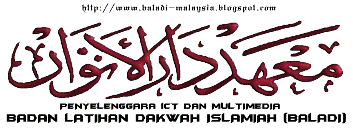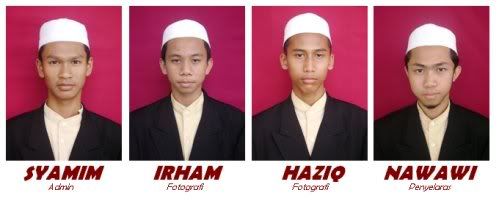From Wikipedia, the free encyclopedia
| Hari Raya Aidilfitri | |
| Official name | Hari Raya Aidilfitri, Hari Raya Puasa, Arabic: AidilFitri عيد الفطر |
|---|---|
| Also called | Translation: Feast of the Breaking of the Fast, Eid, Idul Fitri, Lebaran (Indonesia), Rojar Eid (Bangladesh), Ramazan Bayramı (Turkey) |
| Observed by | Muslims |
| Type | Islamic |
| Significance | Marks the end of Ramadan, the holy month of fasting |
| Date | 1 Syawal |
| Celebrations | Decorating, Feasting, Visiting Family and Friends, Lighting Oil Lamps, Balik Kampung |
| Observances | Prayer |
| Related to | Hari Raya Aidiladha, the other Islamic festival, which occurs approximately seventy days later |
Hari Raya Aidilfitri (also Hari Raya Puasa, literally "Celebration Day of Fasting") is the Malay term for the Muslim festival of Eid ul-Fitr. Hari Raya is also known as Lebaran. Muslims in Brunei, Malaysia and Singapore celebrate Eid like other Muslims throughout the world. The term "Hari Raya" literally means "Day of Celebration" — it is also occasionally used to refer to Eid ul-Adha in the form of "Hari Raya Aidiladha". The main greeting used by Muslims in Malaysia and Singapore is "Selamat Hari Raya" which means "Happy Eid" in Malay. Another greeting is "maaf zahir dan batin" which translates loosely to "I seek forgiveness (from you) physically and spiritually", for Hari Raya is a time to reconcile and renew relationships with others.
Contents[hide] |
[edit] Fasting
During the Muslim month of Ramadan leading up to Hari Raya, it is mandatory for Muslims to fast from dawn to dusk. All Muslims except the young, old or infirm must fast. Many Muslims also abstain from pleasures such as cigarettes and sexual activities during the daylight of the fasting month.
Widely, markets, or 'Ramadan bazaars' are held in many areas around the country, where all sorts of food and kuih — traditional Malay delicacies — are sold for breaking fast or buka puasa. Hotels and restaurants have also exploited this situation to offer exorbitant Ramadan buffets. This practice of overindulging has been criticised by Muslim clerics, notably the mufti of the state of Kelantan.
[edit] Preparation
On the eve of Hari Raya, Muslims will recite the takbir, which is held in mosques and surau (smaller place of worship). In some communities, there will be congregations reciting the takbir from house to house.
In big cities and towns, shopping malls and commercial centres will hold big promotions and price discounts for festive shoppers as people purchase clothes and supplies. Decorations are hung in public areas and Hari Raya songs will be played in shopping complexes. The media, such as the television will host various programs in conjunction with the celebrations.
Many people also traditionally return to their hometown generally from big metropolitan cities to rural areas. This is known as balik kampung — literally going back to one's home town to celebrate Hari Raya with family and friends. At many times, the flux of vehicles on the roads nationwide increased the number of car accidents, including deadly ones, occurring during the festive season. Road safety campaigns are often launched by the authorities ahead of the festivities in the effort of lowering the discomforting number of accidents. Sexual activities are extremely prohibited.
[edit] Celebrating
Usually on the eve of the celebrations, family members, especially mothers and housewives, will be busy preparing food, cakes, sweets, biscuits and various delicacies to be served on the day of Hari Raya. Delicacies such as ketupat or rice cake and a meat cuisine called rendang are among the most famous cuisines that are served during this day. Other family members will help in other chores such as decorating and cleaning up the house.
Days before Hari Raya, house compounds, particularly those in the countryside will be lit up with oil lamps known as pelita or panjut. This display of oil lamps will reach its height on the 27th night of Ramadan, called the Tujuh Likur night. 'Likur' literally meaning a figure between 20 and 30, hence 'tujuh likur' means twenty seven. Originally during the early days of the arrival of Islam among the Malays, the purpose of lighting the oil lamps was to attract spirit of passed relatives and angels to descend to people's homes during the night of Lailatulqadar. However after ages has passed, such misconception is regarded counterfactual as much understanding of Islam were obtained. Nowadays the oil lamps are lit solely for decorative purposes.
It is customary for Malays to wear traditional Malay costumes. The dress for men is called baju Melayu while the women's are known as baju kurung and baju kebaya. Traditional textiles such as songket and batik are worn favourably during this day.
Muslims will attend Eid prayer in the morning and consecrate together harmoniously while taking the chance to meet and greet each other. Once the prayer is done, it is also common for Muslims in Malaysia to visit the grave of their loved ones. During this visit, they will clean the grave, perform the recital of the Yasin — a chapter (surah) from the Qur'an and also the tahlil or prayers for the deceased. All these are done in hope that their loved ones are blessed by God and they are spared from the punishment in the grave.
The rest of the day is spent visiting relatives or serving visitors. Hari Raya is a very joyous day for children for this is the day where adults are extra generous. Children will be given token sums of money, also known as duit raya from their parents and elders.
During the night, there are often celebrations with sparklers and firecrackers, albeit restrictions on playing firecrackers enforced by the authorities. Most firecracker stocks are purchased and smuggled illegally from black markets. Safety issues, especially among children are raised and alarming cases relating to injuries caused by playing firecrackers are often reported, which initially led to the banning of playing firecrackers. Despite of the enforcement of banning firecrackers, more Malay children turn to home-made firecrackers such as meriam buluh (bamboo cannon) as alternatives to commercial fireworks. Usually the lighting of firecrackers begins a few days before the end of Ramadan, and continues for about a week afterwards.
Label: artikel














Catat Ulasan
<< Hadapan